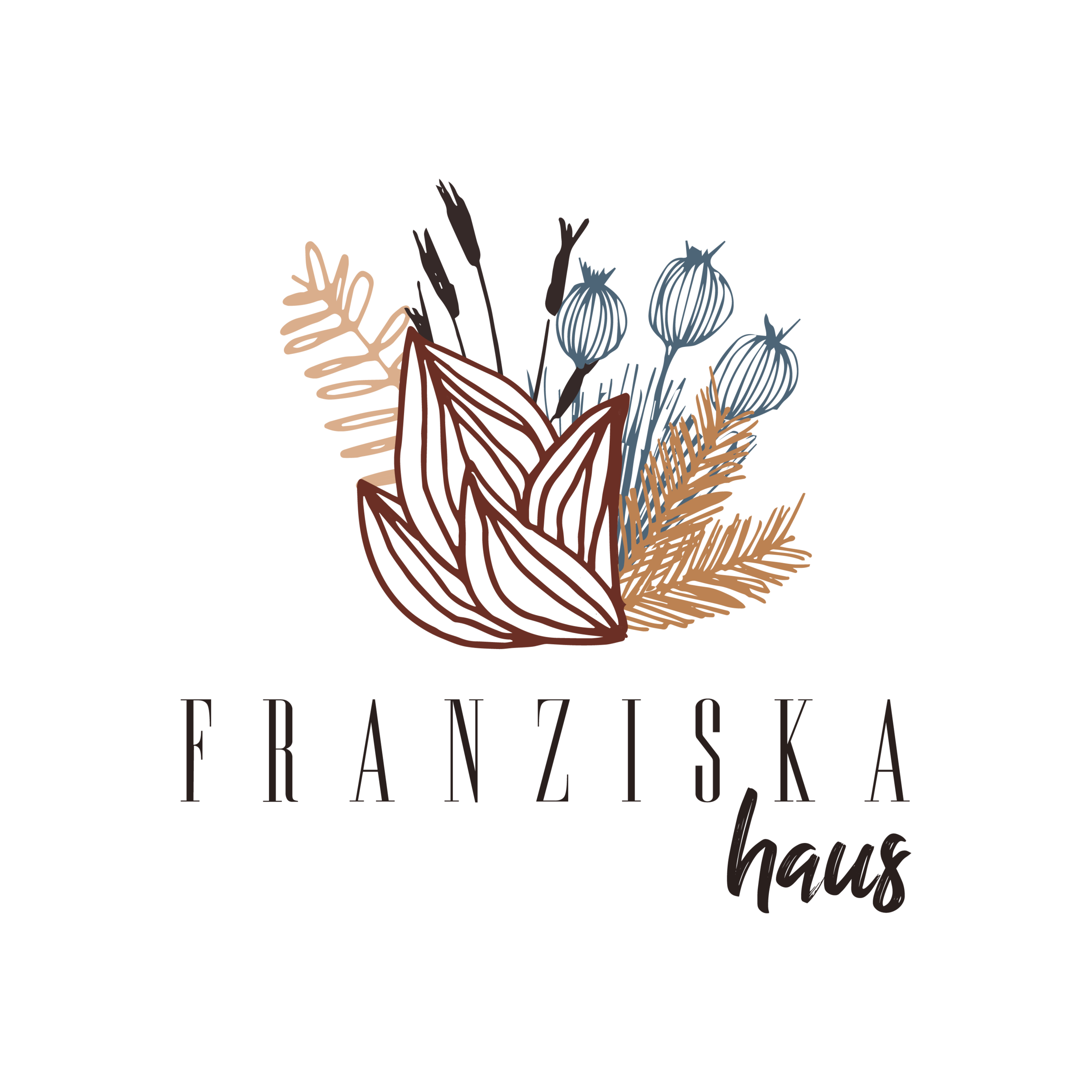The Journey That Became The Franziska Haus Bed & Breakfast
One could say that this whole venture began as a young child listening to my grandmother Franziska explain how she had thrown her diary off the deck of an ocean freighter. My grandfather had urged her to forget the past, leave the traumatic memories of the old world behind as they embarked on their voyage to the promise of a new life in America. In the years that followed, it wouldn’t take much to trigger a specific memory—and with a heavy serious expression, Omi would recite yet another cautionary tale of what had been “Im Lager” and warn to never take the goodness in life for granted.
Group of “aunties” in front of St. Leopold’s Kirche (Jabuka, Serbia) early 1940s. This church has been reproduced in our stairway painting by friend Lorrie Quimby, a fellow Yamhill County BB Innkeeper.
In the early 1900’s, Franziska’s Balkan homeland, north of the Mediterranean, had been called the “Bread Basket of Europe” and her family’s farm was no exception in this regard. Live stock, orchards, and bountiful vineyards afforded the people of Yugoslavia richness of community and spirit. It was in the small village of Jabuka, with its white washed, neatly arranged stucco houses at the center of vast surrounding fields of fertile soil, that our family enjoyed an abundant farm life. It included the cultivation of their own vineyards and the production of wines that were sold to local restaurants and the Church. My grandfather Wendel was especially fond of God’s most special gift, he aptly dubbed “Holy Water”. He still enjoyed the ever-cherished fermented grape nectar on a daily basis while living with us up until just a few years ago when rejoined his wife Franziska in the beyond at the age of 95— the same year we purchased the building site for the Franziska Haus on Fox Farm Road.
Village man collecting grapes.
Village woman gathering the harvest.
Unfortunately, our family’s history also encompasses hardship; and the waves of persecution that swept over Europe. Their idyllic life was all but destroyed in the aftermath of WWII as Wendel, Franziska and their young daughter Katharina lost their homestead and endured harsh treatment in concentration and prisoner of war camps during the postwar takeover of then Yugoslavia by Tito’s Communist regime. The townspeople in villages like Jabuka were persecuted by the government because they were regarded as ethnic German, despite having settled in the Balkan lands several centuries earlier and serving their townships in peaceful cooperation with their ethnic Serbian neighbors. Millions of the “historically Balkanized Germans” were ironically exterminated right at the time postwar world leaders claimed they would never tolerate another genocide. Apparently they ignored the plight of our people. Miraculously, Franziska managed to escape the death camp with her daughter and flee westward. Much of their journey was on foot, traveling many harrowing miles, spending some nights in a family’s barn, being offered an occasional cup of milk, and at times scrounging discarded chunks of bread and food scraps from the garbage in order to survive. With determination and perseverance Franziska and her young daughter made it to Austria (hundreds of miles from their Serbian homeland). By drawing on her vivacious personality and culinary expertise, she eventually found work there in a Gast Haus where she was known to labor tirelessly from the very early morning hours to late into the evening making sure that all guest were well fed and cared for.
Through sheer personal determination, Franziska was later able to locate and reunite with her husband, who himself had been confined for four years in a Russian POW camp where he had withered to a near deathly 85 pounds. After eight unsuccessful applications, the reunited threesome eventually secured visas for the family to journey to the United States. Out of a deep respect for our beloved grandmother Franziska, we strive to carry her enduring spirit and glowing hospitality forward to the present.
Jabuka Church Festival about 1940 with traditional dress (Wendel and Franziska 2nd couple from left)
Wendel and Franziska about 1980





